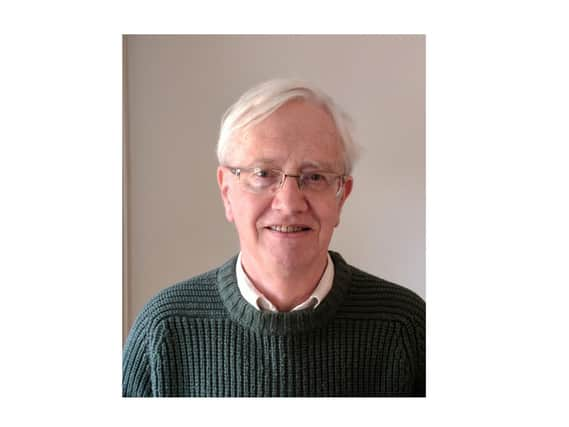Comment by Harborough churches: There are some advantages to wearing masks


Viewpoint by Derek Williams, a retired Anglican priest, author and journalist
I’ve discovered a great advantage to wearing a face mask (apart from the public health benefit). I can talk to myself without people staring at me and thinking that either I’m addressing them or an imaginary friend. Previously, I tried to chunter without moving my lips, but that skill has so far evaded me.
Advertisement
Advertisement
Behind a mask I can mutter away quietly and the small mouth movements can easily be mistaken for the extra effort required to breathe through the thing. Maybe masks should be mandatory for mobile hands-free conversations. I can’t be the only person who finds it disconcerting when a person walks by holding a loud conversation with the air through an invisible device.
There are disadvantages too, of course. It’s harder (for me, anyway) to recognise someone else wearing a mask, or even to be recognised by them. The eyes don’t always have it, and people tend not to wear the same recognisable clothes whenever they go out. Unwittingly snubbing people has become an occupational hazard of the new normal.
An even worse disadvantage is that it’s impossible to give a smile without some major facial contortion, which could also be interpreted as being stricken with a sudden pain. The mask hides pleasure and gratitude, thereby robbing checkout assistants and others of the occasional ray of human sunshine in their otherwise dull day. Even conversation is difficult. Words become muffled or slurred, without the aid of alcohol.
“Masking” is a common term for hiding something. Bad news is released quietly by an institution in the hope that it will be hidden behind some current major event or issue. Bold claims in a glossy brochure mask the exceptions and warnings buried in the endless small print. In previous eras, actors wore masks to convey their character or emotion. Our word “hypocrite” comes directly from a Greek word for a stage actor.
Advertisement
Advertisement
Yet masking is a staple part of everyday human behaviour. We put on what we consider to be our best face, hiding our disappointment, pain, anxiety or fear behind a false joviality or “stiff upper lip”.
“I’m fine”, we say, when in fact we’re not. We do it with good intentions. We don’t want to bother others with our problems; we feel embarrassed by confessing our weakness; we are afraid that people will look down on us or offer inappropriate clichés when what we need is understanding and support.
There are other less noble masks too. Some people feel pressured to adopt styles of dress and makeup to conform to arbitrary fashion but are never truly “themselves”. The bouncy confidence and friendliness of a fraudster, scammer or even potential abuser masks their intention of taking advantage of us. Deep insecurity and uncertainty can be hidden behind a bully’s façade of unpleasant aggression or assertiveness.
One of the profound truths of the Christian faith is that our human masks are invisible to a God who sees through them. Yet he still loves us and cares about us as we really are, especially when our masks slip and we face him honestly at last.
Derek Williams is a retired Anglican priest, author and journalist. He is communications officer for Churches Together in Harborough and blogs occasionally at https://gentlerword.blogspot.com